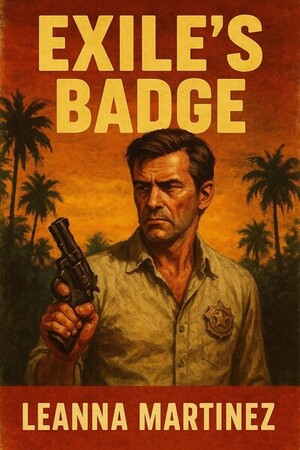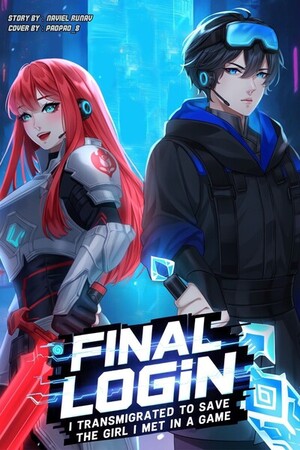Chapter 8:
The Cost of Truth
Exile's Badge
The morning light slanted weakly through the curtains, the kind of pale, tired sun that never quite burned through the Richmond fog. The house smelled faintly of coffee gone cold and the waxy scent of crayons left open on the dining table. Emily’s latest masterpiece sprawled across the page, three stick figures holding hands beneath a sun that looked more like a starburst. She had pressed hard enough with the yellow crayon that it snapped in two.
Beside the table, Maggie was folding clothes into a small suitcase. Not hurried, not frantic. Just deliberate, the way someone does a chore they’ve thought about too long. Each shirt was smoothed before it was laid in, every corner tucked sharp. She didn’t look up when Sam stepped into the doorway.
“You’re packing,” he said, though the words tasted stupid the moment they left his mouth.
Maggie’s hands stilled on a folded sweater. She let out a breath, long and frayed. “I can’t keep waiting for you to come home, Sam. I can’t keep raising Emily in a house where you’re nothing but a shadow.”
He crossed the room, stood near the table, his eyes falling to the broken crayon. “This isn’t about me being gone. It’s about what I’m chasing. Caruso is real. He’s dangerous. If I stop now…”
She cut him off, voice sharper than he’d heard in months. “If you stop now, you still have a family. If you don’t, then what do we have? A ghost of a husband, a father who’s more rumor than presence.”
Sam swallowed, jaw tightening. “If I let him go, he wins. You know what he’s done. You’ve seen it too.”
Maggie snapped the suitcase shut, her movements clipped. “What I see is a man willing to lose everything just to prove he’s right.”
The silence that followed was thick, broken only by the scrape of Emily’s chair as she climbed up beside the table. She looked at both of them, wide-eyed, sensing the heaviness she didn’t have words for.
“Are we going on a trip?” she asked.
Maggie crouched down, brushing a strand of hair from Emily’s face. “We’re going to Aunt Claire’s for a little while, sweetie.”
Emily’s brow furrowed. “Is Daddy coming?”
Maggie hesitated. The pause was long enough for Sam to feel it settle like a stone. “Not this time,” she said finally.
Emily turned to him. “You’ll come later?”
Sam forced a smile that didn’t reach his eyes. “I’ll see you soon. You’ll draw me more pictures while you’re gone?”
Emily brightened a little, nodding. “Lots.” She wrapped her arms around his neck, the warmth of her small body pressing into him, the smell of crayons and peanut butter clinging to her clothes. He held her tighter than he meant to, as though he could anchor her there by sheer will.
When she let go, Maggie was already lifting the suitcase. She didn’t ask Sam to help.
At the doorway, Maggie paused. For a moment, she looked like she might turn back, say something, anything. Instead, she squared her shoulders. “I can’t do this anymore,” she said softly. “Not like this.”
Sam stood in the threshold as they walked down the steps, Emily clutching her stuffed rabbit, Maggie steady under the weight of the bag. The car started with a cough and rolled slowly down 42nd Avenue, swallowed by fog before it reached the corner.
He didn’t move. He didn’t call after them. He just stood there, framed by the door of a house that suddenly felt too big, too hollow.
When the silence pressed in again, he turned back inside. Emily’s drawing still lay on the table, yellow crayon broken beside it. He set it upright against the sugar jar, staring at the stick figures holding hands under a sun that burned too bright for the paper.
The house hummed with absence.
Sam poured himself a cup of coffee gone cold, sat down at the table, and drank it anyway.
* * *
The house was a hollow shell without them. Sam noticed it in the small things like the silence of the refrigerator, no crayon drawings taped to its door, and the absence of Emily’s toys scattered across the floor. Even the air felt thinner, like the house had been breathing and now it held its breath.
He poured a drink, cheap whiskey into a heavy glass. The ice cracked, but it didn’t soften the silence. He drank half in one swallow, set the glass down, and listened to the echo in the kitchen. No laughter from the living room, no voice calling him to bed. Just the sound of a man left alone with his ghosts.
So he did the only thing he knew how. He went back to the case.
At the precinct, the Caruso file sprawled across his desk like an infection. Manila folders fat with scraps, photographs pinned to the corkboard, names underlined three times. He sharpened pencils, stacked notes, arranged and rearranged the same pieces as if order might reveal meaning. Long nights bled into dawn, the bullpen emptying around him until only the hum of the vending machine kept him company.
He called numbers, tracked down informants, flipped through records until his eyes blurred. Every lead bent back into itself. Caruso’s name came up in whispers, then vanished. Businesses listed under shell companies, employees who swore they’d never met the man who signed their checks.
When the paper trail ran dry, Sam took to the streets.
He sat in his car across from the church on Turk where Caruso was said to slip in after hours. The man never came. Only parishioners with candles and coats too thin for the wind.
Another night, he parked outside the North Beach restaurant where Caruso’s lieutenants liked to eat late. The waiters knew his face. One nodded once in Sam’s direction, then turned the blinds so the dining room disappeared.
He sketched patterns in his notebook, cars that came and went, meetings that started and ended, but every pattern dissolved by morning. Caruso was smoke. The closer Sam leaned, the more the city folded around him, hiding him from view.
The silence followed him everywhere. Ray noticed. He always did. One night, near midnight, Ray found him at his desk, hunched over a stack of reports that had nothing left to give.
“You can’t fill an empty house with case files, Sam.” Ray’s voice was quiet, almost apologetic.
Sam didn’t look up. “Go home, Ray.”
“I did,” Ray said. “And then I came back, because I knew you’d still be here.”
Sam kept writing, neat lines that meant less and less.
Ray let out a slow breath. “She’s gone, Sam. You can’t bring her back with photographs of Caruso shaking hands.”
Sam’s pencil stopped for the first time in hours. He stared at the page, the weight of Ray’s words pressing against the silence. He didn’t argue, didn’t defend. He just closed the folder, stacked it square, and set the pencil on top.
Ray shook his head. “You’re burning what’s left of you on a man who already owns this city.”
Sam finally looked up, eyes steady, voice low. “Then I’ll burn it down with him.”
Ray flinched like the words had landed heavier than a shout. He almost said more, but in the end, he only muttered, “You’re gonna get yourself killed,” before turning away.
When the door shut behind him, Sam reopened the folder. The silence of the bullpen pressed close, deeper than the empty house, heavier than the city fog.
He poured another drink from the flask he kept in the bottom drawer, took a swallow, and bent back to the notes.
Because the work was all that was left.
* * *
The fog rolled thicker over North Beach, wrapping the street in damp silence. Sam sat in his car across from the restaurant, engine off, cigarette burning slow between his fingers. Through the window he could see shadows moving inside, laughter muffled by brick and velvet curtains. Caruso’s circle, dining like kings while the city turned itself inside out to serve them.
The phone buzzed against his thigh. He flicked the cigarette into the gutter and answered.
“Detective Holden?” The voice was clipped, official. A highway patrolman. “We need you to come out. There’s been an accident on I-80. Near Davis. Vehicle matches a description we were given, a late-model sedan, registered to a Margaret Holden.”
The rest blurred, but Sam caught the words: collision, semi-truck, casualties.
He didn’t remember the drive. Just the highway lights flashing past in jagged intervals, the road stretching longer than it should. The steering wheel was iron under his hands. By the time he pulled up to the cordon, the night was alive with emergency strobes. red, blue, white, washing the asphalt in an endless cycle.
The wreck sat crooked against the guardrail, twisted metal where a car had been. The front end was folded in on itself, glass spiderwebbed across the pavement. A stuffed rabbit lay half-soaked on the shoulder, its fur dark with mud.
Sam walked forward until a trooper held up a hand. “Sir, you can’t…”
“Holden,” Sam said. His voice was calm, steady. “They called me.”
The trooper hesitated, then nodded, lowering his hand. “Brake line gave out,” he said quietly, as if rehearsing the official line. “Lost control, crossed into the truck’s lane. Just bad luck.”
Sam looked past him at the wreckage, the rabbit lying in the light. His jaw was set, his chest hollow. He didn’t rage. He didn’t cry. He just stood in the strobe glow and knew.
Caruso hadn’t needed a bullet. An accident said the same thing: you can’t protect them, and you’ll never protect yourself.
The drive back was longer than the drive out. The house on 42nd Avenue loomed in silence, porch light still burning like it had been waiting. Inside, everything was exactly as they’d left it: suitcase gone, Emily’s crayons still scattered on the table, the broken yellow stub lying where she’d pressed too hard.
Sam moved through the rooms slowly, like a man inspecting an empty museum. The quiet pressed against his ears until it rang.
In the kitchen, a single drawing remained on the fridge, Emily’s last. Three figures holding hands under a too-bright sun. Mommy. Daddy. Emily. The colors bled into each other where she’d pushed too hard, but the smiles were wide, unshakable.
Sam stared at it until his vision blurred, though no tears fell. He pulled out his notebook, sat at the table, and opened to a clean page.
His pen moved once, deliberate, the words stark against the paper: The cost of truth = everything. He underlined it, closed the book, and set it flat on the table.
The refrigerator hummed. The house waited. The silence was unbearable.




Please sign in to leave a comment.